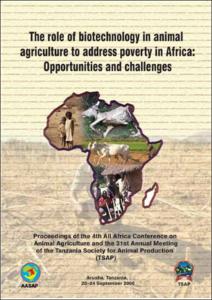The role of district government in poverty alleviation: case studies in Malinau and West Kutai Districts, East Kalimantan, Indonesia
Towards wellbeing in forest communities: a source book for local government
Governments in many countries are decentralising to give more control over decision making and budgets to local administrations. One expectation of this change is that local governments will more effectively and efficiently respond to the poorest citizens in their jurisdictions. Decentralisation is especially significant to forest communities, which have historically benefited little from government services and poverty reduction programmes because of their physical isolation and social marginalisation.
Towards wellbeing: monitoring poverty in Kutai Barat, Indonesia
Poverty is a persistent problem throughout Indonesia. Seven years after decentralisation began there is little improvement in the wellbeing of rural people. Local governments have received new opportunities and responsibilities for development, but few districts have the necessary capacity and experience to effectively reduce poverty. This report provides a portrait of household poverty and wellbeing in Kutai Barat, a district that was only established in 1999.
Towards wellbeing: monitoring poverty in Malinau, Indonesia
Poverty is a persistent problem throughout Indonesia. With decentralization, local governments had a new direct role in alleviating poverty and local wellbeing. At the same time they could do so in accordance with local realities and development needs. Yet, there is little improvement in the wellbeing of rural people. Local governments may lack the necessary capacity and experience to reduce poverty effectively. This report shows how a local specific monitoring system can be developed and applied.
Trajectories of rice-based farming systems in mainland Southeast Asia
This review has drawn on published research and the collective insights of a small team of experienced researchers to identify important trajectories in rice-based farming systems and to draw out the implications for agricultural research as a basis for discussion within ACIAR and the broader research community working on smallholder rice-based farming systems in MSEA.
Trajectories of rice-farming households in mainland Southeast Asia
The preceding chapter has demonstrated at the macro-level the importance of agricultural and economic growth for the significant reduction in rural poverty in MSEA that has occurred in recent decades. In this chapter we aim to identify and explain the major trends and trajectories of rice-farming households in the region within this macroeconomic context. We also present a typology of rice-farming households that takes account of the dynamic and diverse nature of rice-based farming systems.




